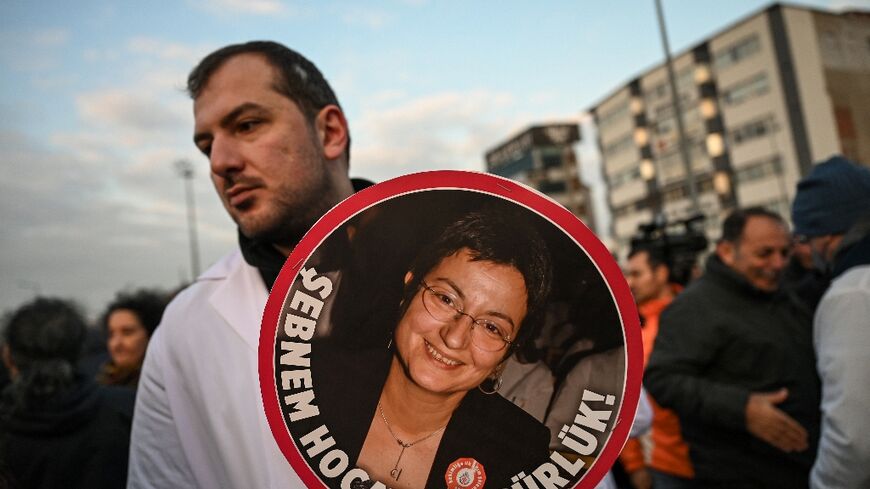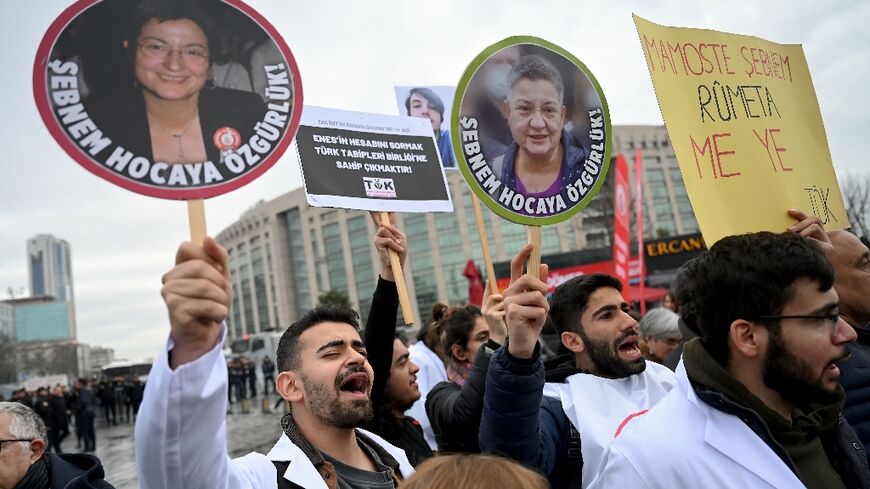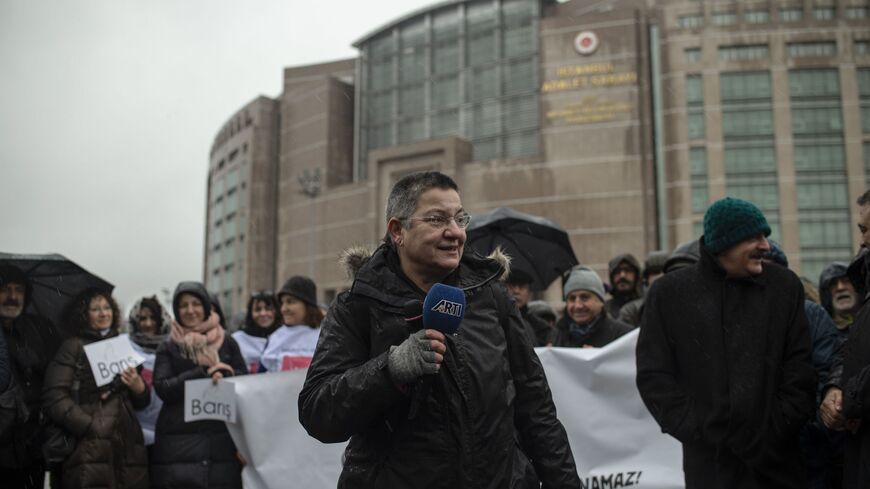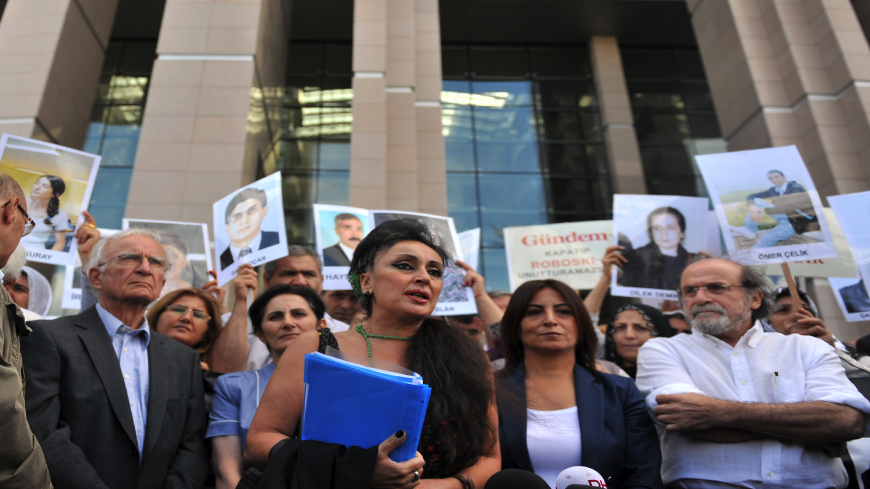Turkish court refuses to release doctor in chemical arms trial
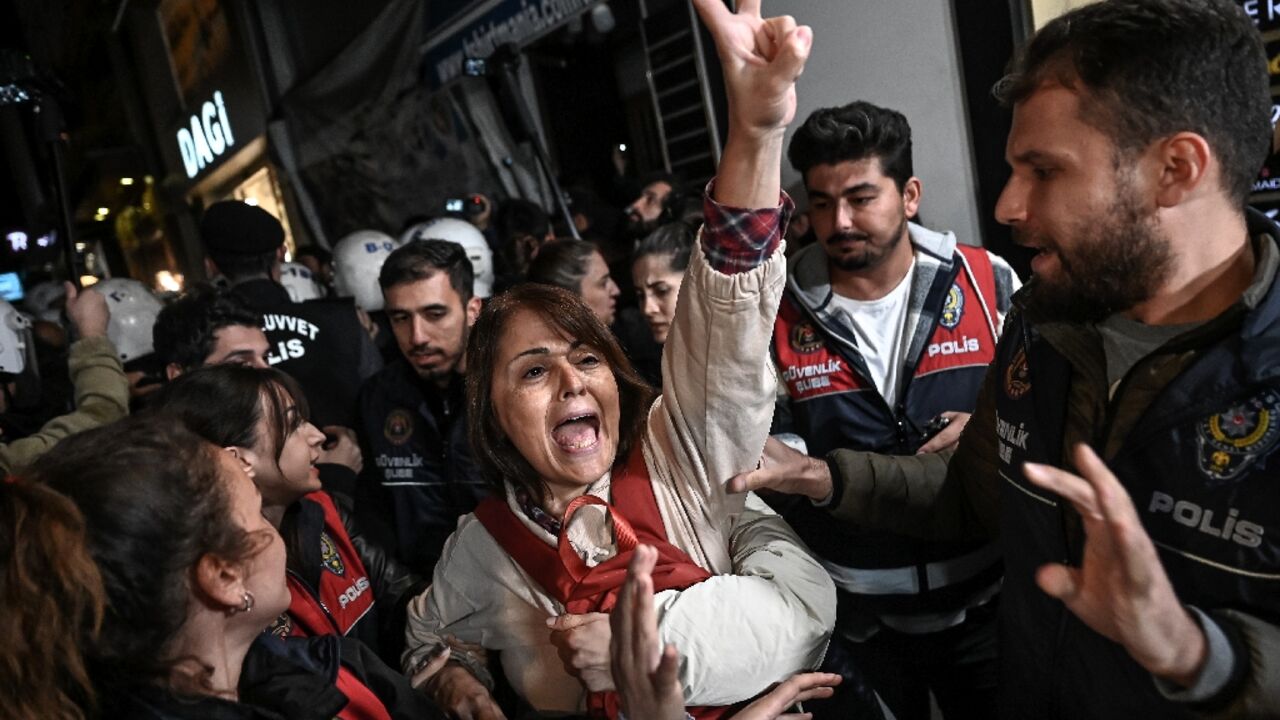
A Turkish court Thursday refused to release a top doctor who faces years in jail for demanding a probe into the army's alleged use of chemical weapons against Kurdish fighters in Iraq.
Turkish Medical Association head Sebnem Korur Fincanci was detained in October for using a television interview to highlight claims that first surfaced in media close to the outlawed Kurdistan Workers' Party (PKK).
The militia said 17 of its fighters had died in Turkish chemical weapons attacks in the mountains and caves of northern Iraq.
The PKK is proscribed as a terrorist organisation by Ankara and its Western allies for waging a bloody insurgency that has claimed tens of thousands of lives since 1984.
President Recep Tayyip Erdogan accused Fincanci of "speaking the language of terrorism" while the defence ministry called the allegation "slander".
The 63-year-old forensic medicine expert could be jailed for up to 7.5 years if found guilty of promoting "terror propaganda".
Fincanci told the presiding judge in the second week of her trial that Erdogan's comments made an impartial hearing impossible.
"The president could call me a terrorist," she told the packed Istanbul courtroom.
"After this statement, how could public institutions and the judiciary make an independent ruling?"
The judge ended the hearing by sending the doctor back to prison and setting the next hearing for January 11.
- 'Turkey's bravest voice' -
Fincanci is known in Turkey as both a forensics expert and a human rights campaigner who openly speaks out against Erdogan's government.
Her initial detention sparked protests on the streets of Istanbul that resulted in dozens of arrests.
The Turkish Medical Association she chairs covers around 80 percent of the country's doctors.
But its past forays into national political debates have seen several of its top members come under investigation.
The union said in a statement to reporters outside the courtroom that all 11 of its executive committee members were now under formal investigation for potential "membership of a terrorist organisation".
"If I am a terrorist, I wonder what organisation I am a terrorist of," Fincanci told the court.
"They treat me as if I am the most dangerous suspect in the world in order to influence you," she told the presiding judge.
Fincanci's case has drawn an outpouring of support from international rights groups as well as some European officials.
German human rights commissioner Luise Amtsberg called Fincanci "one of Turkey's bravest voices".
Amnesty International and Human Rights Watch issued a joint call with five other organisations for Fincanci's release pending her trial.
